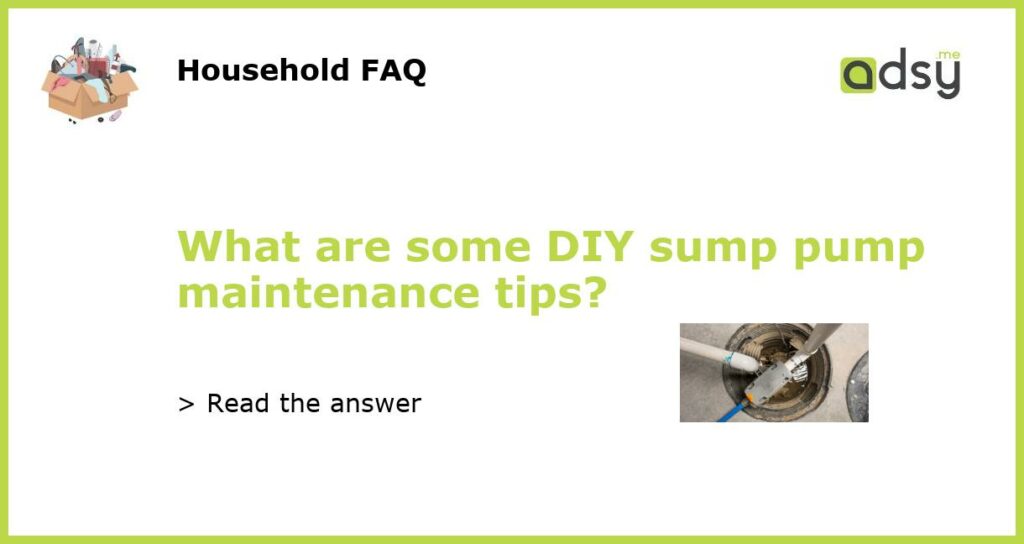Regularly check for any signs of damage
One of the most important DIY sump pump maintenance tips is to regularly check for any signs of damage. Inspect the pump and its components for any cracks, leaks, or corrosion. These can all be signs of a potential problem. If you notice any damage, it is important to address it as soon as possible to prevent further issues.
Clean the sump pump and pit
Another key maintenance tip is to regularly clean the sump pump and pit. Over time, debris, dirt, and sediment can accumulate in the pit and around the pump. This can impede the pump’s performance and potentially cause it to fail. To clean the sump pump and pit, first, disconnect the pump from the power source. Then, remove any debris from the pit using a scoop or your hands. Next, use a hose to rinse away any remaining dirt and sediment. Finally, reattach the pump and ensure it is functioning properly.
Test the sump pump regularly
To ensure your sump pump is working effectively, it is important to test it regularly. This can be done by pouring water into the pit until the float or pressure switch activates the pump. The pump should then start and remove the water from the pit. If the pump does not turn on or if it is not effectively removing water from the pit, it may need to be repaired or replaced.
Ensure the discharge pipe is clear
Another important maintenance tip for sump pumps is to ensure the discharge pipe is clear. Over time, debris and sediment can accumulate in the pipe and block the flow of water. To check the discharge pipe, first, disconnect the pump from the power source. Then, remove the pipe from the pump and inspect it for any obstructions. If there are any blockages, use a hose or pipe brush to clear them. Once the pipe is clear, reconnect it to the pump and ensure it is secured properly.
Consider installing a battery backup
If your sump pump relies solely on electricity, it is a good idea to consider installing a battery backup. This is especially important in areas prone to power outages. A battery backup ensures that your sump pump will continue to work even if the power goes out. Additionally, it can provide peace of mind knowing that your basement will be protected from flooding in the event of a power failure.

